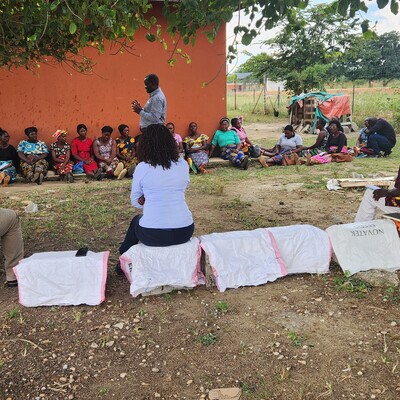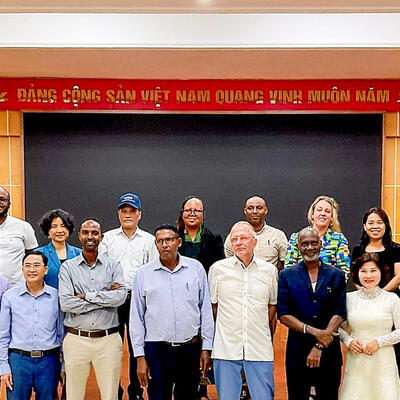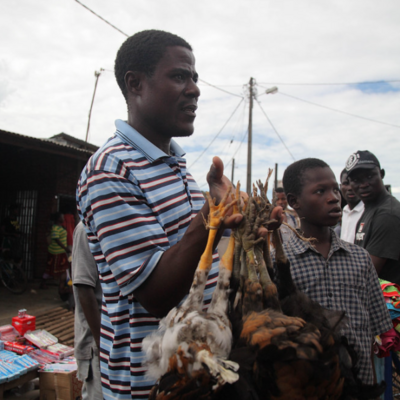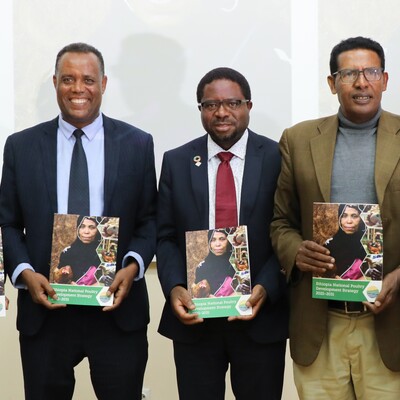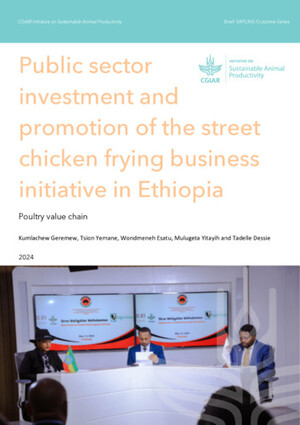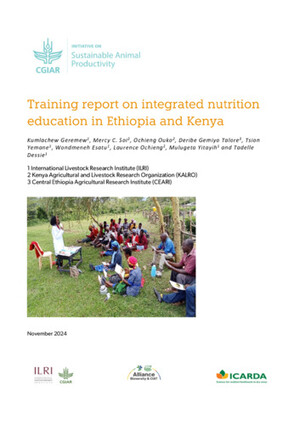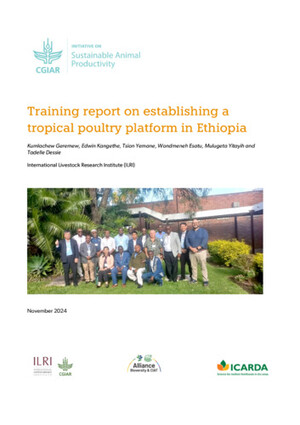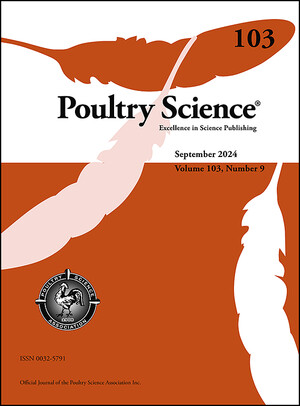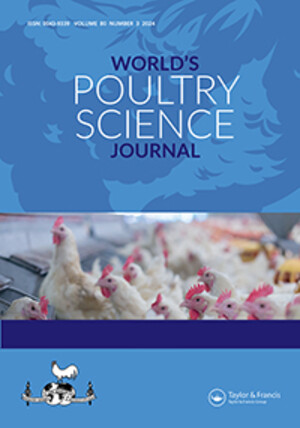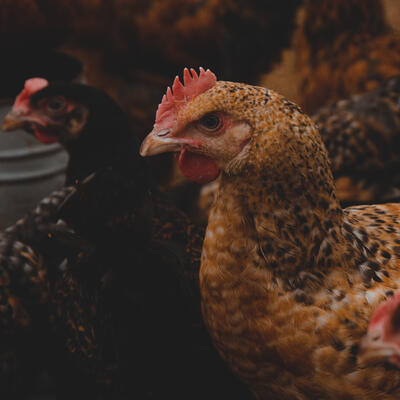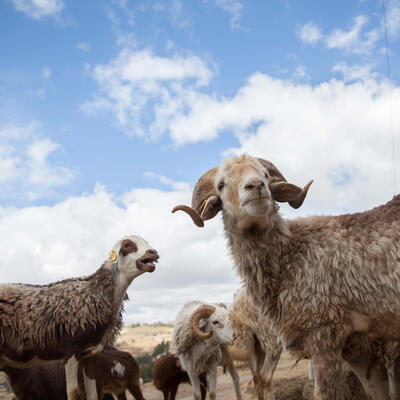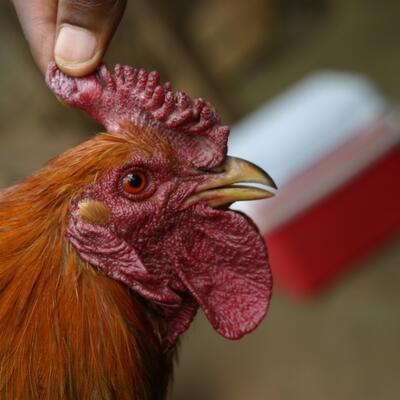
Chicken farming has transformed my livelihood: Meseret’s story
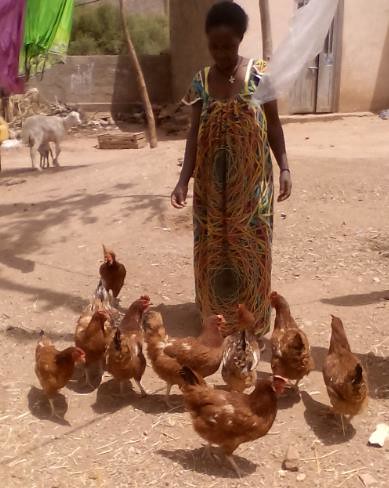
Meseret takes good care of her ACGG chickens (photo credit: Shumiye Belay)
Meseret Girmay, a forty two year old small-scale farmer, is a beneficiary of the African Chicken Genetic Gains (ACGG) program’s chicken breeds improvement work in Ethiopia. Meseret and her husband, who is a casual laborer, do not have land to farm and they live in a rented house with their four children in Wukro in Kitlet Awlealo District in country’s Tigray region.
She received 25 Sasso chicks from ACGG, on September 2016, and set up a forty two meter square good quality chicken house for them. For her birds nutrition, she supplements chicken feed with locally available resources such as barely, sorghum,maize, wheat and sometimes she purchase wheat bran from the local market. She also uses leftover vegetables like tomato, onion, lettuce and cabbage to supplement the chicken feed. She treats and vaccinates her chickens regularly with the support of professionals from the district agriculture office and the Mekelle Agricultural Research Center.
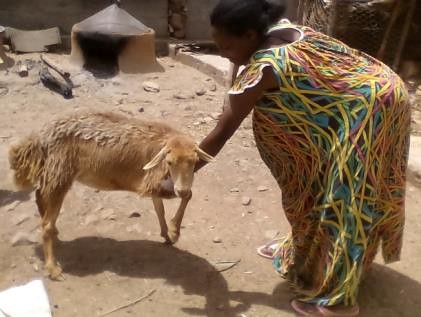
Meseret bought a sheep with the money she earned from the ACGG project (photo credit: Shumiye Belay)
After joining the ACGG initiative, she lost four of her chickens to disease and one was stolen. From the remaining 20, 1 cock was slaughtered for a holiday and 8 cocks were sold at ETB 200 (USD 8.7) each. Currently, Meseret has 10 layers, which lay 2 eggs each every 3 days (1 day gap). On average she gets 6 eggs per day. She sells half of them and the remaining are consumed at home, mostly to supplement her children’s nutrition. This chicken keeping activity has had a positive impact on her household’s nutrition and income.
With the money earned from selling eggs and cocks, Meseret has purchased a sheep for ETB 700 (USD 30) and spent the remaining money on household expenses. Chicken and sheep farming has made her one of the successful farmers in the area. Meseret says ‘it would have been risky to engage only in chicken production because diseases might break out and kill all the chickens’. This diversification ensures her livestock farming, which is her main sources of livelihood, is protected again loss.
Meseret admits that she previously did not consider engaging in chicken farming. But after receiving an orientation on how to raise poultry, the 25 chicks and continuous technical support from the ACGG team, her view of chicken production has changed. She looks forward to expanding her business and earning more from it in coming years.





